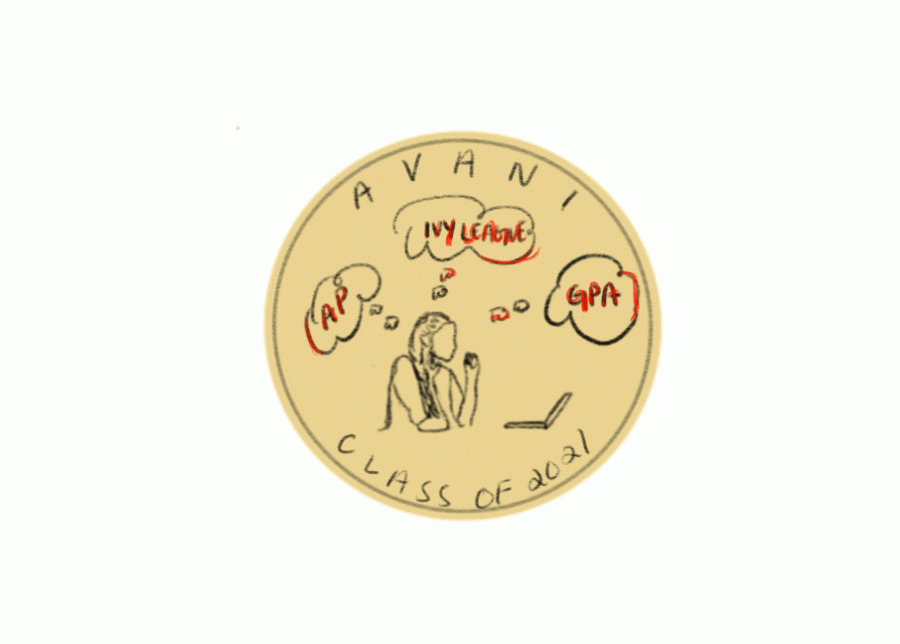What happens when a hypocrite recognizes their own hypocrisy?
For many high schoolers, issues such as cheating, deadlines and tuition serve as common concerns during senior year. The Sidekick daily news/assignment editor Avani Kashyap discusses her experience with feeling like a hypocrite when it comes to the aforementioned concerns. Graphic by Akhila Gunturu
May 14, 2021
If I had a dollar for every time I looked at my Home Access Center, freaked out over my subpar grades and turned into a math whiz to see what score I needed on the next test to max the class, I would be a budding entrepreneur with a sizable investment fund.
If I lost a dollar for every time I complained of the grade-crazy, Ivy League obsessed students at Coppell High School, I would be bankrupt.
That’s what it’s like to be a hypocrite.
I know learning matters more than grades. But throughout my high school years, I cared too much about my grades and GPA. I wanted to learn, but in my mind, weren’t grades supposed to be indicators of my learning and thus an important metric to be concerned about?
I firmly believe that elite colleges are overrated. You can get a great education and learn almost everything you need at a state school rather than paying $70,000 a year at a private university. But why were my college applications centered around getting into the most prestigious school with the lowest acceptance rate?
I despised cheating. But aside from refusing answer keys, I’ve done nothing more to expose cheating in school or actively discourage students from participating in it.
As the daily news/assignment editor of The Sidekick, I’ve constantly advocated for accountability, transparency and communication. But how could I tell other staffers to meet their deadlines when I wasn’t even meeting mine?
When I reflect on the last four years, I realize that I had become a part of the system that I had actively disagreed with.
But what happens when a hypocrite recognizes their own hypocrisy?
What happens is self doubt. Shame. Frustration. Regret.
It’s hard to feel good about yourself when you’re participating in the very actions you condemn. However, while it’s much easier to remain blissfully unaware, recognizing your hypocrisy is the first step to improving.
I’ve been frustrated with the little progress I’ve made, but if there’s one thing I would’ve told my younger self, it would have been to cut myself some slack. Change is not immediate. Change is a painfully slow journey that happens in increments that are so small it seems invisible. Looking back over the past four years, I’m proud of the ways I’ve grown as an individual, a team member and a leader.
It’s OK to be hypocritical. In fact, I think most people are. Confronting hypocrisy forces you to question not only your beliefs but societal norms. When we are naturally prone to justifying our own beliefs and looking for ways to agree with our actions, acknowledging negative behaviors will allow you to not only look at yourself critically, but analyze societal views more critically.
To the students of CHS: Have faith in your beliefs and find your people. Not everyone cheats. Not everyone who works hard is obsessed with their grades. Explore your passions and don’t sit idle because you have power to create change if you choose to believe it. And don’t forget to send some love to your hypocritical self.
Follow Avani (@AvaniKashyap03) and @CHSCampusNews on Twitter.











